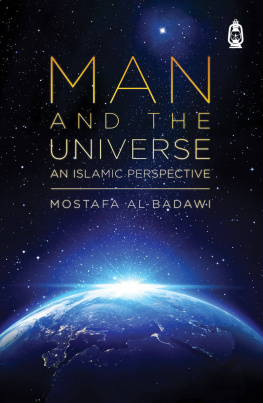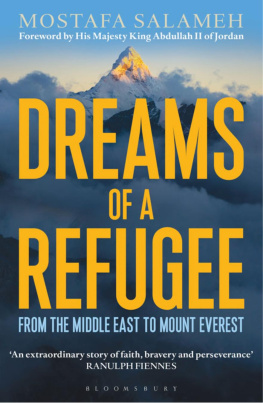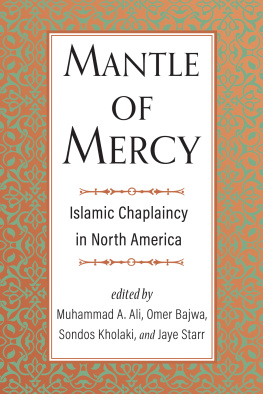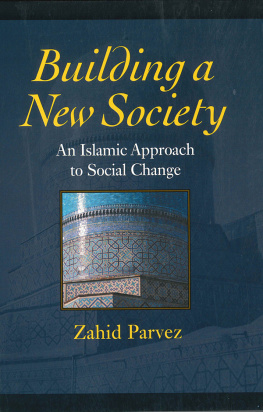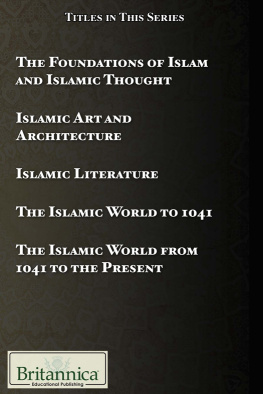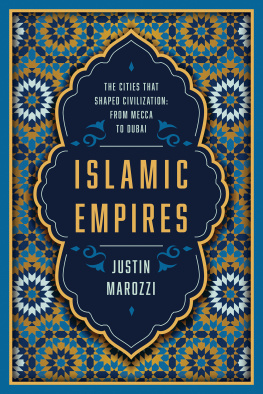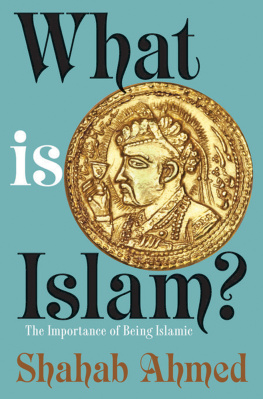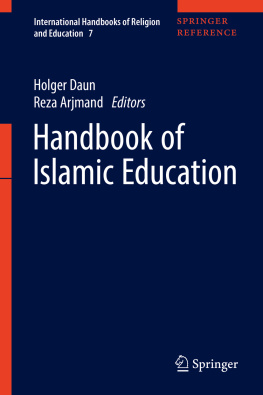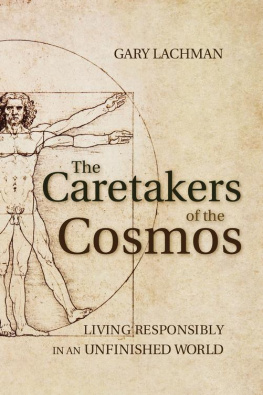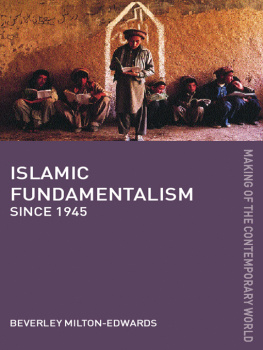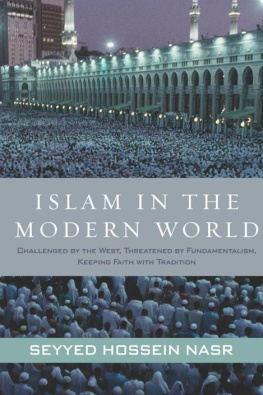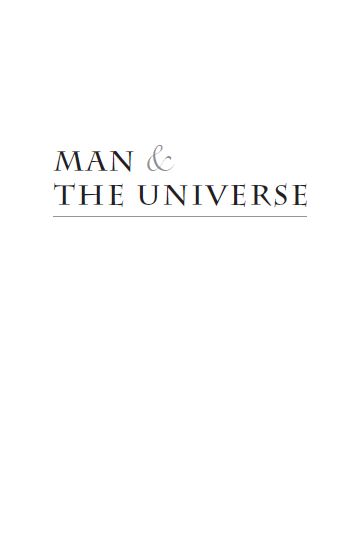
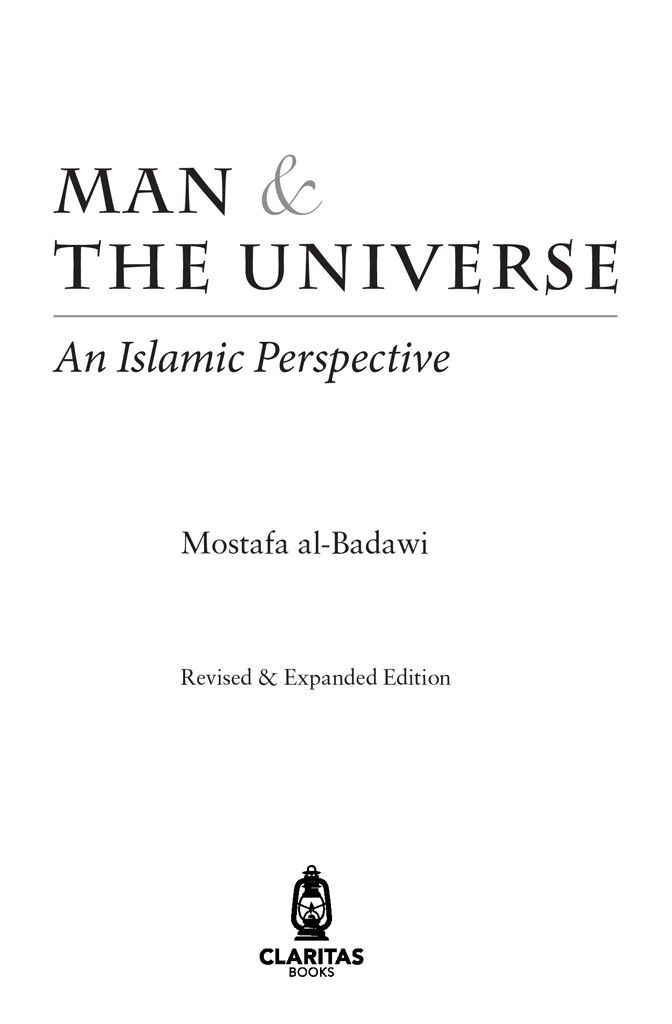
CLARITAS BOOKS
Bernard Street, Swansea, United Kingdom
Milpitas, California, United States

CLARITAS BOOKS 2017
This book is in copyright. Subject to statutory exception and to the provisions of relevant collective licensing agreements, no reproduction of any part may take place without the written permission of Claritas Books.
First Edition: 1999
Second Edition: 2002
Third Edition: 2010
Man & The Universe: An Islamic Perspective
by Mostafa al-Badawi
A CIP catalogue record for this book is available from the British Library
ISBN: 978-1-905837-36-6
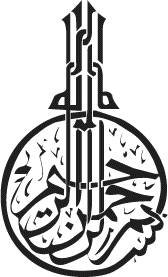
Mostafa al-Badawi is one of the world's premier translators of Islamic spiritual texts. He is a Consultant Psychiatrist and member of the Royal College of Psychiatrists. He studied under many shaykhs, foremost among whom is the late Habib Ahmad Mashhur al-Haddad. His other translations include: Book of Assistance, The Lives of Man, Two Treatises, The Prophetic Invocations, Degrees of the Soul, and more. He resides in Madinah.

CONTENT

INTRODUCTION
M an, the being most able to know and understand, may rightly be called the consciousness of the universe.
The universe, surrounding him visibly and invisibly, contains the signs and means by which he survives and is enabled to fulfil his potential for knowledge.
God, the Absolute, is that which created the myriad worlds: from the tiniest subatomic particles, to the whirling galaxies, to the invisible worlds with all their beings, levels, and modes. He created what we know and what we do not know. Man has been gifted with an integral intelligence, which, when exercised in accordance with the Absolutes laws, is able to comprehend the cosmic laws governing the Absolutes creation: those defining mans place in it, and those leading to the knowledge of God Himself.
To realize this potential to its fullest and rise from knowledge of the relative to that of the Absolute, man has always been guided by successive Divine messages, delivered by Messengers, who are the most perfect of men, fitted and qualified to receive and transmit this Divine guidance. The Message itself has always been an affirmation of Divine Unity, Transcendence, and Omnipotence, and an invitation to mankind to submit to the Supreme Good and enjoy the consequent benefits.
Those Divine Messengers in possession of a scripture became founders of religions, establishing formal worship of the Absolute and the observation of His sacred law within a particular community or geographic location. Other Divine Envoys were then often sent to reinvigorate religions when their adherents were in danger of either deviating too far from them or of abandoning them altogether.
Religions are always at their purest and most dynamic form within the lifetime of their founders, this time being the summit after which there must be decline. As stated above, decline is delayed by subsequent Prophets, but eventually each religion grows weaker and weaker, then dies.
The laws governing the birth and death of religions, as well as the criteria required to distinguish between living, dying, and dead religions were known to the sages of old. Today this knowledge exists only within the last surviving religion, Islam, and then only within a very small minority of Muslims. The rest of mankind does not even suspect the existence of such knowledge.
As with all other religions, Islam also did not escape gradual deterioration. However, it is the last in revelation and unique in possessing an incorruptible Sacred Book, the Qurn. Because of this, Muslims to this day know that they each must live their life, in its smallest and most ordinary details, according to Divine ordinance. And more importantly, they still possess the original sources in which to find clearly delineated patterns of behaviour. They know that the answers to all the questions, great and small, which perplex mankind, are to be found in their Book.
Thus, to speak of man and the universe is, of necessity, to draw on Islamic sources, for only the Islamic perspective retains the full vigour of its God-given wisdom in sum and in detail. Should one seek this kind of knowledge elsewhere one will run into insurmountable problems. Even the most cursory glance at the original sources of other religions will reveal that the distance between them and modern man has become so immense as to render them indecipherable. In addition to this is the historical fact that they have been clearly tampered with and so become full of contradictions.
The original differences between one religion and another appear in their sacred laws, each being prescribed for a particular time and place. Sacred law is that which regulates the relationship between man and his Creator and between one human being and another. These laws, contained in revealed scripture, must thus include patterns of worship and of social interaction.
The last Divine message was sent through the last and most perfect among Divine Messengers, Muammad, may the Absolutes blessings and peace be upon him. The message, as all Divine messages, affirms Divine Unity, Transcendence, and Omnipotence. This last sacred scripture is the Qurn which, contrary to previous scriptures, has been preserved verbatim from the time it was revealed. It is in the unique position of having its integrity guaranteed by the Revealer, the Absolute, till the end of time. And these claims are historically verifiable facts.
This being the case, Muslims are the last repositories of revealed knowledge on this planet and they will remain the treasury of sacred wisdom as long as human beings remain on earth. The Islamic perspective is not and cannot be different from the spirit of the original wisdom which formed the core of every previous revelation. The source of all revelation being one, the essence of all messages is one. However, one has to look beyond form, to perceive meaning thus grasping the underlying unity. Unfortunately modern man has become incapable of doing so.
Since the brutal irruption of the West into the Muslim world around two centuries ago, Muslims have had to face the challenge of living and surviving spiritually in an increasingly hostile environment. Some have coped better than others. The ulam, the traditional scholars of Islam, were in the main immune to the influence of alien thought and, with a few notorious exceptions, fought a protracted rearguard battle. The masses, however, whose knowledge of principles was at best elementary, were swept away by the tidal wave of Westernization, losing in the process what little they had possessed. Thus deprived of all means to evaluate what was presented to them as scientific knowledge, the masses were vulnerable to all kinds of subversion. The first to fall prey to this danger were the most educated, namely the politicians, university professors, writers, journalists, doctors and other professionals. These, the worldly elite, were the most vulnerable. Their education gave them a superficial mentality, and their social status a false sense of superiority, of being the forerunners of progress in their countries. These factors submerged whatever sacred knowledge they still possessed and made them the unconscious allies of the colonial forces they thought they were opposing.
Next page
